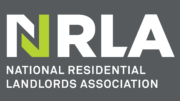Landlords across the UK have been dealt another administrative blow following the Government’s Spring Statement, with new rules requiring them to submit tax returns every quarter - a move that leading industry voices say could drive even more landlords out of the sector.
Under the updated Making Tax Digital (MTD) proposals, from April 2028, landlords earning over £20,000 in annual rental income will need to file digital tax updates four times a year, rather than once annually. The previous threshold was £30,000, meaning tens of thousands of smaller landlords are now caught in the net.
Added layers of pressure for overstretched landlords
Angharad Trueman, President of ARLA Propertymark and Group Lettings Director at Andrews, called the move the “last straw” for many small-scale property investors.
“I don’t think small landlords will be set up to do this,” Trueman told The Negotiator. “The Government are intent on adding layer upon layer, and we really don’t need this.”
The changes will be introduced in stages: from April 2026 for landlords earning over £50,000, and April 2027 for those earning above £30,000. However, the newly announced reduction to a £20,000 threshold by 2028 has triggered widespread concern.
Trueman warned that many landlords - particularly older individuals who are less digitally fluent - would struggle to keep pace with the new demands. “This is just another reason [for landlords] to say ‘I have had enough’,” she said.
Fear of digital exclusion and rising compliance costs
The new rules form part of the Government’s long-term ambition to digitise the entire tax system. But critics argue that for landlords, especially those with modest portfolios or part-time lettings, the burden is disproportionate.
“This isn’t a high-stakes tax avoidance measure; it’s a box-ticking exercise that penalises decent landlords who already follow the rules,” one long-time landlord in Somerset told us. “I’ve been managing a few rental homes since the early 2000s. I’m not an accountant, and I certainly don’t want to be glued to tax software every few months.”
The requirement to invest in MTD-compatible accounting software - and potentially hire professionals to stay compliant - is also likely to increase operating costs for landlords, many of whom are already grappling with tighter margins due to rising interest rates, increased regulation, and proposed tenancy law changes.
The National Residential Landlords Association (NRLA) also criticised the Spring Statement, accusing Chancellor Rachel Reeves of “doing nothing” to support the Private Rented Sector (PRS). A spokesperson for the NRLA said: “This Government seems committed to making things harder for landlords, not easier - all while demand for rental homes continues to rise.”
Mounting frustration as reforms stack up
This latest policy announcement comes on top of sweeping reforms expected under the Renters’ Rights Bill, which is currently progressing through Parliament. The combination of digital tax filings, Section 21 abolishment, and rent control risks has left many landlords re-evaluating whether it’s worth staying in the market at all.
“Every time we think it can’t get worse, something new gets thrown in,” said Jane McMillan, a landlord from Leeds with five rental properties. “Between regulation, tax and tenant rights changes, it’s like they want us gone.”
Industry experts have long warned that pushing landlords out of the sector - especially accidental and small-scale landlords - will only shrink supply and worsen affordability for tenants.
“If fewer people want to become landlords, or if existing ones sell up, where exactly are renters supposed to go?” asked Trueman. “We talk about a housing crisis, but then we make it harder for the people housing the nation to carry on.”
A tipping point for landlord retention?
For many in the sector, the concern isn’t simply about one policy, but the cumulative effect of repeated pressure - financial, regulatory and operational - that keeps mounting year after year.
Digital reporting requirements may seem small in isolation, but when added to frozen tax allowances, higher mortgage rates, rent controls, energy efficiency regulations, and tenancy reform, the effect becomes significant.
Trueman concluded with a stark warning: “Landlords will say ‘I have had enough’. And when they leave, the entire housing market feels the consequences.”








